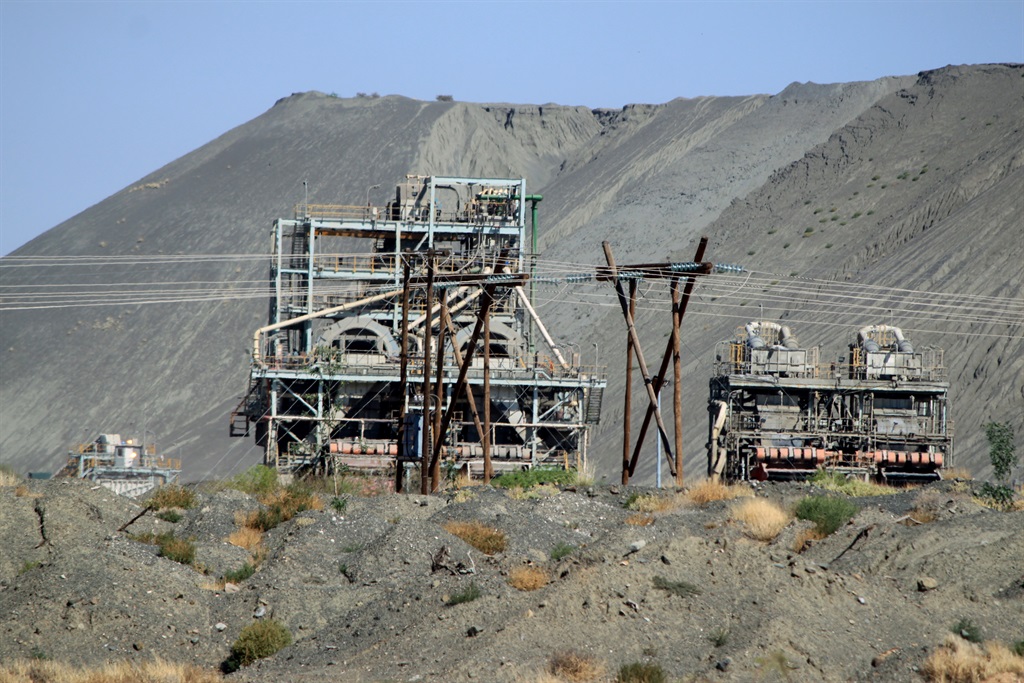
The National Assembly has passed the amended version of the Mineral and Petroleum Resources Development Bill.
The bill was passed yesterday afternoon through a vote with 198 members of Parliament voting in its favour, while 81 voted against it and one MP abstained.
The amended bill is going through the National Assembly for the second time in two and a half years.
Parliament rushed the processing of the bill and passed it in March 2014, a few weeks before the general elections that year.
But President Jacob Zuma refrained from signing it into law and referred it back to Parliament for reconsideration in January 2015.
Zuma cited problems with constitutionality. As it stood, he said, the bill did not pass constitutional muster.
Among some of his concerns was that the National Council of Provinces and the provincial legislatures did not sufficiently facilitate public participation when passing the amendment act as required by the Constitution.
The president was also of the view that the bill should have been referred to the National House of Traditional Leaders for its comments because the bill affected customary law or the customs of traditional communities by allowing people to enter upon land to conduct an investigation … and in so doing would ignore the consent principle in customary law.
Yesterday afternoon Mineral Resources Minister Mosebenzi Zwane urged MPs “to support the position that we have taken on this matter of national interest”.
“We have to use our collective might to deal with this subject in a manner that ensures that we take steps to re-industrialise our country, diversify our energy mix, contribute to food security and strengthen the national fiscus.
“History places us in a position to rewrite its course and prove our critics wrong. We have made a good start in South Africa. We can use this bill to unite our country and forge a common vision of a truly successful nation,” he said.
Zwane said the processing of the bill followed numerous engagements he had with key stakeholders in mining and upstream petroleum, who expressed a need for a stable and predictable regulatory framework.
Zwane said Zuma’s concerns were genuine and required further affirmation from the legislators.
Zwane said the bill sought to improve the ease of doing business, and address the shortfall identified in several court rulings such as the Bengwenyema case on consultation of communities, the Mawetse case on effective date of a right and the McSand judgment on land use and mining.
He said the bill would also improve regulation of social and labour plans to optimise the effect of the mining industry to development, and consolidate these into district municipalities’ integrated development plans and introduce a credible and orderly means of state participation in the development of the nation’s petroleum resources.
The bill will also provide for an integrated licensing regime for the granting of rights, issuing of water use licences and approval of environmental authorisations, provide for regulation of associated minerals, provide for designation of minerals as strategic for the purposes of supporting local beneficiation and industrialisation; and align the provision for sanction to non-compliance with the Competition Commission, and introduce a deterrent to non-compliance.
The DA’s James Lorimer said his party opposed the bill in 2014 pointing out that it was “gravely flawed”.
“And here it is, back again, with very few of its flaws fixed,” said Lorimer.
Lorimer said while the opinion in the mining industry was divided about the bill, the industry was against it.
“Mining companies are divided in that some think this bill is so bad that the current uncertainty is better than the certainty of a bad bill. Others think the bill should just be passed, even if it is bad, so they are certain what they are dealing with,” said Lorimer.
Lorimer said he feared that if there was certainty, mining companies will know for sure that it was no use investing in South African mining anymore and it would be better to move their money elsewhere.
Lorimer said the bill would not fix anything and would in fact worsen uncertainty by putting massive power in the mineral resources minister’s hands to set the rules and change them quickly.
“It will open the door to corruption, allowing the minister to hand out mining rights to friends, cronies or the highest bidder, and based on current performance, we can be sure that the state won’t get all that bid money,” he said.
Lorimer said during the processing of the bill, the National House of Traditional Leaders said it wanted an independent authority to issue mining licences.
“They were diplomatic about why this was, but it was clear that even under the current system they find that licences are not being granted for empowerment reasons, that is, to poor rural communities, but to politically connected cronies.”
Lorimer charged that the new bill would give even more power to the minister to select who gets licences. But he proposed that the ANC fix the bill when it is processed in the National Council of Provinces.
“If this bill had been done properly the first time round we would already have seen investment in our oil and gas sector and we would be reaping the benefits. But the ANC tries to grab as much as it can for its cronies, and so there has been no investment.
In his speech, Zwane’s deputy Godfrey Oliphant dismissed this, saying it was untrue that the bill would give the mining minister unfettered powers.
EFF chief whip Floyd Shivambu claimed that Zuma referred the bill back to Parliament because “the Gupta interests in mining had objected to the adoption and passing of the law”.
“The real reason the bill was brought back to Parliament is because the Guptas said it cannot be signed,” claimed Shivambu.
His claims were rubbished by ANC MP Zet Luzipho, who spoke later in the debate.
Despite this, the EFF voted with the ANC to pass the proposed amendments.




 Publications
Publications
 Partners
Partners








